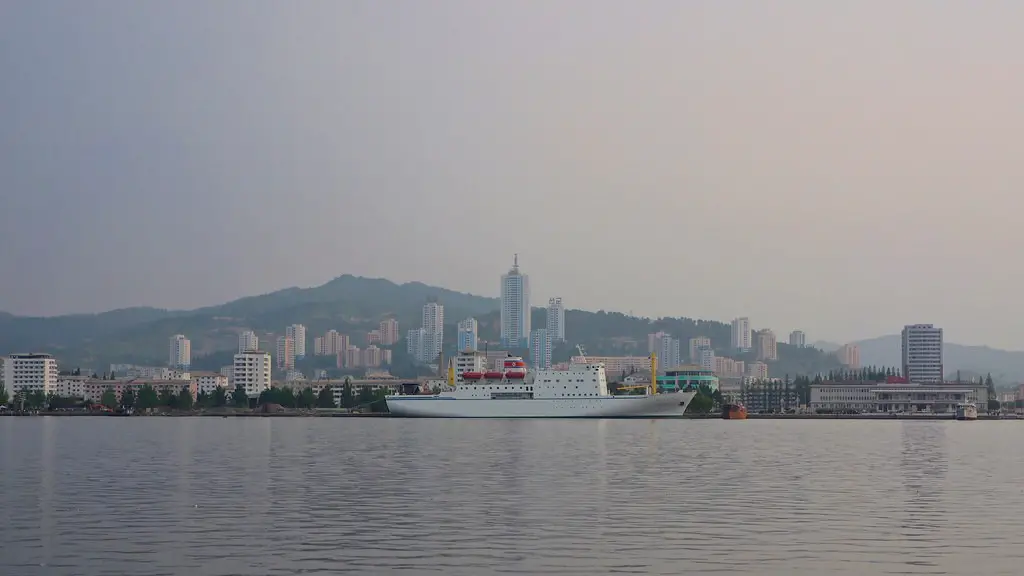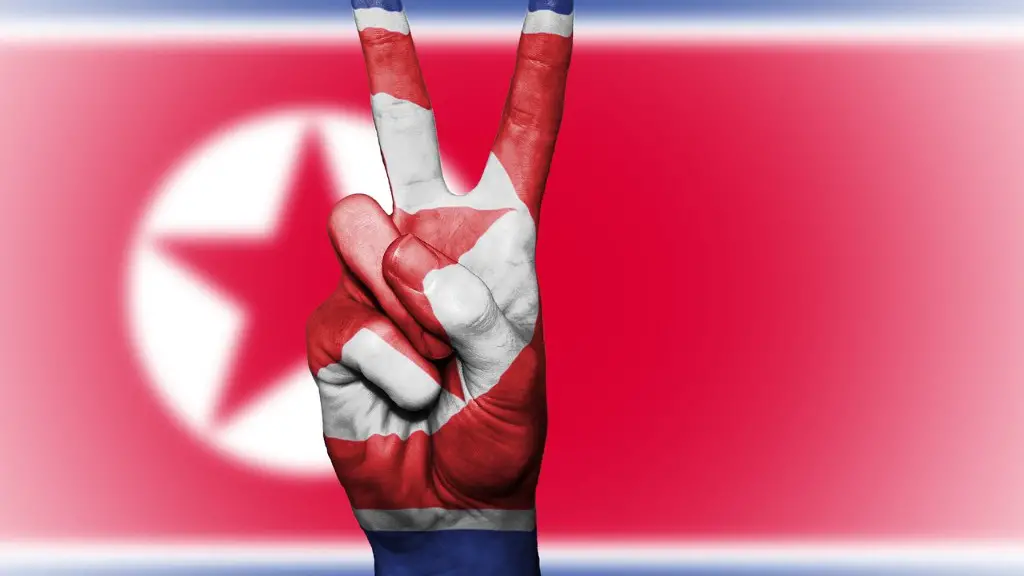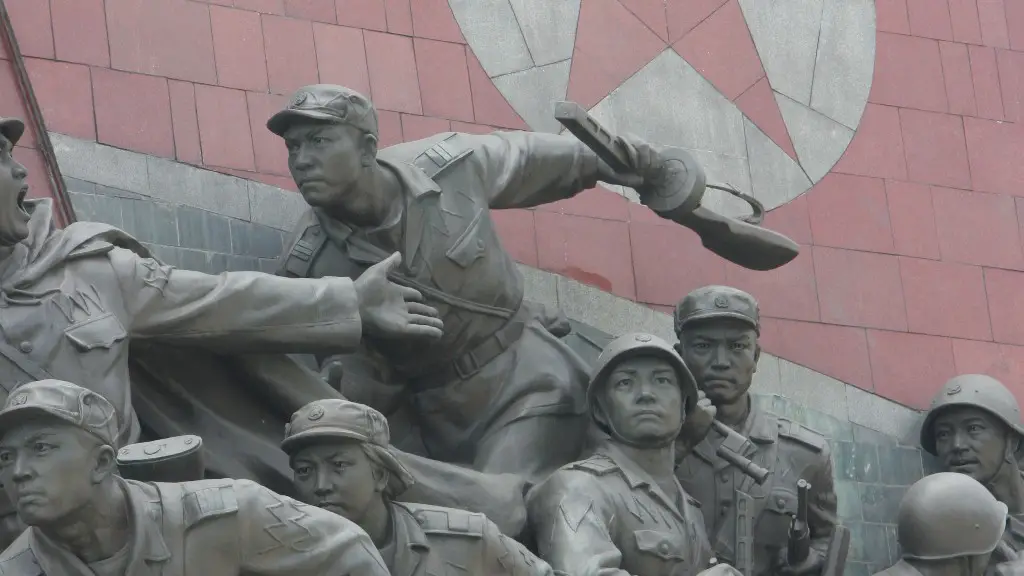With North Korea’s nuclear capabilities evolving, observers have been keenly interested in speculating over potential targets of a potential North Korean strike. For years, North Korea has been considered one of the most unpredictable states in global politics and its capability to wield nuclear weapons makes it all the more terrifying of a prospect. But is there any way to predict what targets they would choose and why?
Although North Korean aims are largely unknown, some Western analysts have speculated that Pyongyang’s primary objective is regime survival. As a small, isolated, one-party state, North Korea has placed great emphasis on propaganda and the projection of a strong image that would frighten any potential enemies. In light of this, a nuclear strike would serve as a strong symbolic gesture of their opposition to their rivals, while also removing any enemy targets that could possibly threaten their rule.
Of course, this doesn’t answer the question of where such an attack might be directed. Some Western analysts suggest that the North Korean regime might focus their fire on South Korea, which is arguably North Korea’s greatest rival in the region. After all, South Korea is an economically and militarily powerful nation, and could possibly increase its influence militarily or economically in the region if given the opportunity.
Furthermore, North Korea might view a nuclear strike on South Korea as a viable option as it would allow them to weaken the economic and military power of its primary rival, while also forcing the South Korean government to back down from any potential hostile actions against North Korea. This would effectively remove any threat posed by the South Korean government, while simultaneously strengthening the North Korean government’s hold on the region.
However, other Western analysts suggest that North Korea might target other nations with nuclear weapons as well. For instance, some have speculated that North Korea might target Japan, a nation that is regularly considered to be a close ally of the United States. From North Korea’s perspective, targeting Japan would send a clear message to the United States, and could potentially put the United States in a position where it would be forced to intervene in any conflict between North and South Korea.
Finally, some analysts have speculated that North Korea might target other countries in the region. For example, they might target China, which is the largest economic and political partner of North Korea and could be seen as a symbol of North Korea’s power. Additionally, North Korea may also target other nations in the region, such as Russia and other states that they consider to be hostile to their own interests.
Strategic vs retaliatory strikes
In general, it is unclear if North Korea would be more likely to initiate a strategic or retaliatory strike. Historically, North Korea has been known to use military force in an offensive capacity, such as in the Korean War. However, due to the fact that North Korea has nuclear weapons, it is likely that any strikes would be of a more strategic nature, as North Korea would aim to control an element of the region, rather than to simply retaliate for perceived slights.
Additionally, North Korea could also employ a combination of both strategic and retaliatory strikes as part of a larger plan. For example, they may target both South Korea and Japan, in order to send a strong message to the United States, while also weakening the military and economic might of their rivals. As such, North Korea might see such a combination of strikes as the best way to achieve their objectives.
In any case, it is impossible to definitively predict where North Korea would strike and why. However, it is clear that due to their nuclear capabilities, even small strategic strikes could have devastating consequences. As such, it is important totry and understand North Korea’s motivations and potential targets, in order to better prepare for any potential conflict.
North Korea’s nuclear arsenal
The key factor in determining where North Korea would most likely target is ultimately their nuclear arsenal. North Korea is believed to possess as many as 60 nuclear warheads, as well as a variety of missiles and medium-range rockets that could be used to deliver them. This arsenal is believed to be mainly based in underground locations and hardened facilities, making it difficult to detect and target in any military operation.
As a result, it is likely that North Korea could successfully launch a retaliatory strike on any target of their choice, as long as they have the necessary resources to do so. This relies heavily on North Korea’s nuclear weapons and missile technology, as it allows them to have greater freedom in selecting potential targets. North Korea is also likely to have an advanced reconnaissance and intelligence-gathering apparatus, which could help them quickly identify potential targets and launch a successful strike.
It is also important to note that North Korea may be willing to negotiate and use diplomacy as a way to defuse any potential conflict. Although North Korea has been seen to refuse to engage in dialogue with the international community in the past, it is possible that they may be willing to negotiate if they feel threatened by external forces. If successful, these negotiations could result in a peaceful resolution and prevent any potential conflict.
Motivations behind North Korean aggression
Despite the uncertainty around North Korea’s motivations, some experts hypothesise that the primary objective of its nuclear ambitions is to secure its position as a regional power regardless of the cost. It is thought that North Korea believes that possessing nuclear weapons will give it a strategic advantage over neighbouring states and an increased level of autonomy in international affairs.
North Korea has also gone to great lengths to strengthen its military and produce modern, technologically advanced weapons as part of their nuclear program. This suggests that North Korea may be seeking to expand its military capabilities and use it as a deterrent against potential adversaries, in order to provide itself with a greater degree of protection.
It is also possible that North Korea is motivated by an ideological desire to unite the Korean Peninsula under the rule of Kim Jong-un and the North Korean regime. North Korea has expressed its desire for unification before, although no concrete plans have been put in place to achieve this. A nuclear strike could be seen as a mechanism through which unification could be achieved, although such a move would undoubtedly be strongly opposed by the international community.
International reactions
Naturally, the threat of a North Korean nuclear strike has been met with a strong aversion from the international community. In order to contain the threat, the United States has proposed various sanctions and diplomatic measures in an effort to limit North Korea’s nuclear capabilities. Other countries, such as China and Russia, have also expressed their opposition to North Korea’s nuclear ambitions, although their efforts to contain the threat have been less effective.
Regions around North Korea have also been severely impacted by the threat of a North Korean nuclear strike. South Korea, Japan and other countries in the region have enacted various measures to defend against a potential attack, such as establishing joint military exercises and creating anti-missile defence systems.
International organizations have also been involved in attempting to contain the threat posed by North Korea. The United Nations has passed several resolutions that seek to limit North Korea’s nuclear ambitions, and some other international organizations are also actively involved in attempting to limit the possibility of a North Korean nuclear strike.
Prevention and reduction of risk
Due to the threat of a North Korean nuclear strike, it is essential that preventive measures be taken in order to reduce the risk of such a strike occurring. International diplomacy is one such measure; increased dialogue between North Korea and the international community could potentially lead to a diplomatic solution and a reduction of tensions.Other forms of preventive measures include economic sanctions and the deployment of military defences. These measures are aimed at reducing the capability of North Korea to launch a nuclear strike, as well as reducing the probability of a successful strike. Additionally, improved intelligence-gathering and reconnaissance strategies can help to detect potential threats from North Korea in a timely manner.
Finally, it is important to note that North Korea is also likely to be influenced by external forces. It is possible that increased economic pressure or military threats could induce North Korea to drop its nuclear ambitions or reduce the risk of a nuclear strike. This could be achieved through international negotiations or through other forms of diplomacy.
Implications of a North Korean strike
Finally, it is important to consider the implications of a potential North Korean nuclear strike. A nuclear strike from North Korea could have devastating effects on the region, both in terms of the physical destruction it could cause, as well as the political and economic fallout.
The effects could be felt both domestically and internationally, as North Korea’s actions have the potential to significantly destabilize the region. In particular, neighbouring countries such as South Korea, Japan, China and Russia could all be affected by a potential North Korean nuclear strike, and tensions could be further heightened in the region.
Additionally, any nuclear strike by North Korea could also have implications on the global economy and political order. It is possible that if North Korea were to launch a nuclear attack, then the international community would respond with increased economic sanctions, or even the use of military force. Such an outcome could lead to a further destabilization of the region, with potentially catastrophic consequences.





